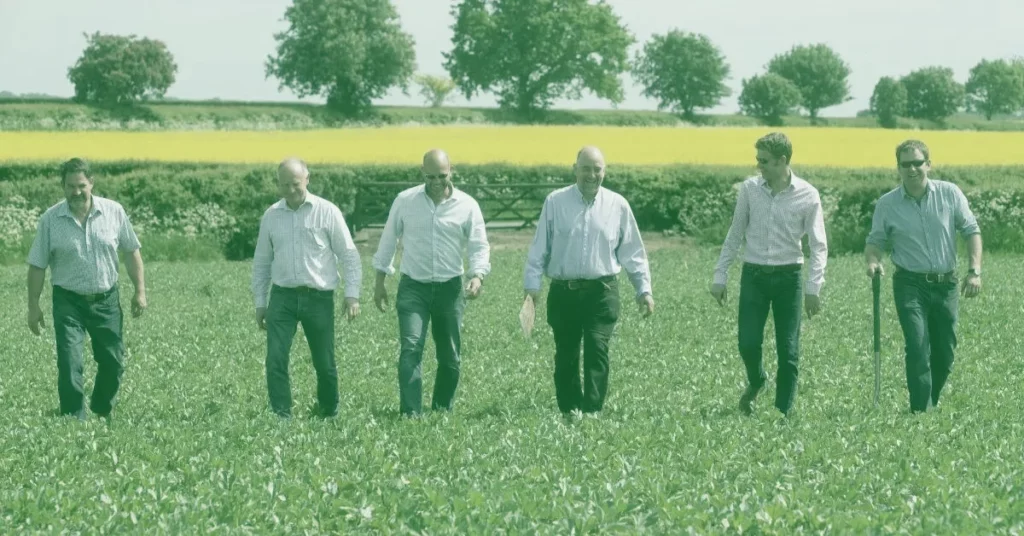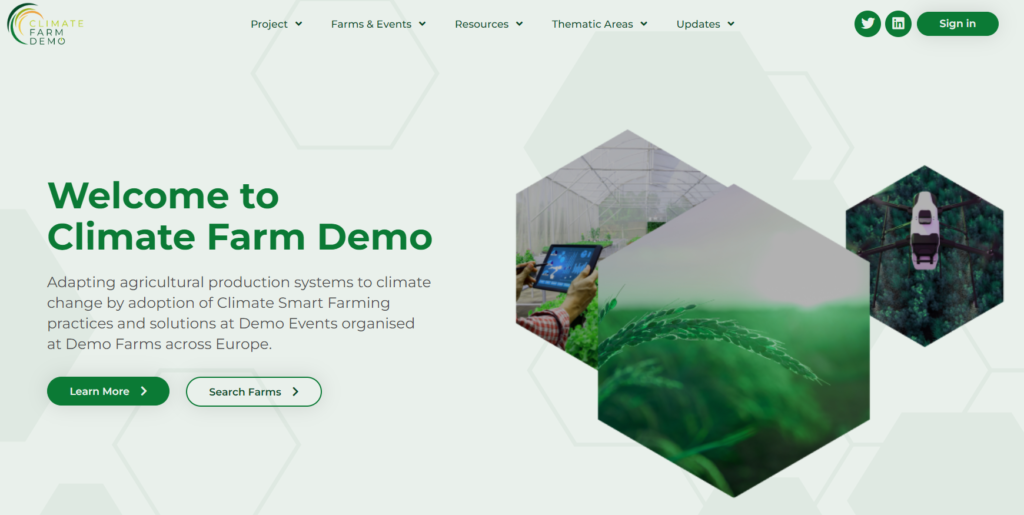In this month’s update, we look at two farms in the United Kingdom. Both are very different but share a similar goal, showcasing the individual nature of climate-smart farming and how it can be integrated into all production systems.
Silvopasture and Agroforestry
Grace Lily Rose, farms Urn Field Farm in Surrey, England where she is embracing the concept of agroforestry.
Agroforestry is a land management approach that integrates trees and shrubs into agricultural landscapes to enhance biodiversity, improve soil health, and increase farm productivity. It combines agriculture and forestry to create more sustainable and productive land-use systems.
Silvopasture, a subset of agroforestry, combines the cultivation of trees with livestock grazing on the same land. Lily uses organic legume-rich grassland with an apple orchard to achieve this. ‘’My low input organic farming system focuses on soil health and carbon capture which brings so much benefit to everyone involved including nature.’’, Lily states. This method enhances forage quality for animals, provides shade and shelter, and improves land resilience, offering economic and environmental benefits.
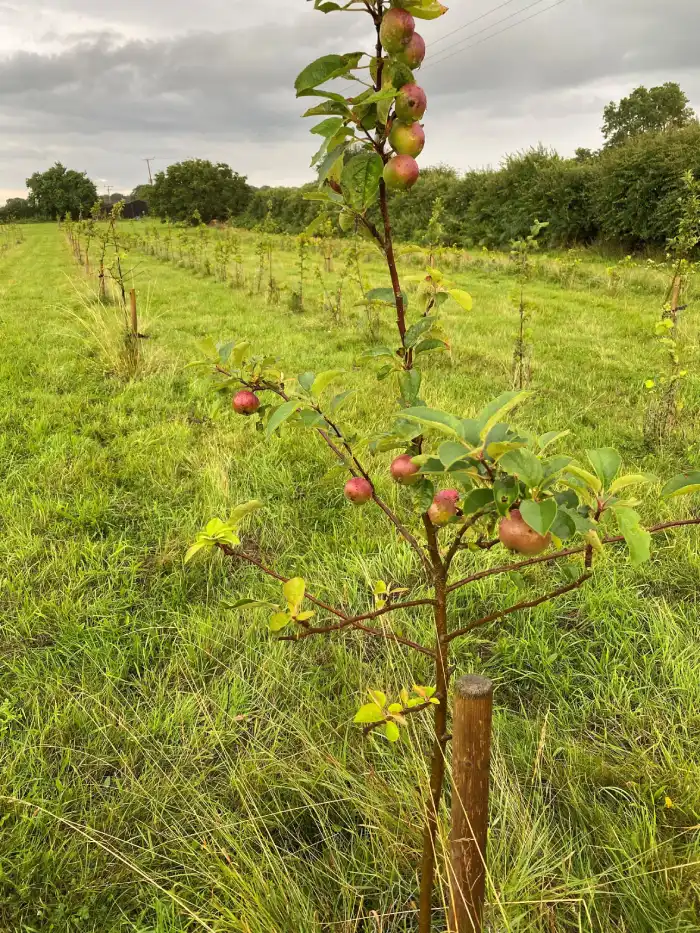
At Urn Field Farm, agroforestry is not just a production method but a climate action strategy. By blending trees into the landscape, the farm contributes to carbon sequestration while enhancing biodiversity and soil fertility.
The Green Farm Collective Open Day
Michael Kavanagh, farms Church Farm outside Wolverhampton, in the heart of the West Midlands in England. On Wednesday 22nd May Michael opened his farm gate to the public to showcase his production system and what climate-smart actions he’s taking to improve his farm. On the day several speakers, demonstrations, and trade stands were present to showcase and provide valuable information to those thinking about regenerative farming.
The management of Church Farm focuses on plant health and building resilience whilst reducing synthetic inputs. The arable rotation incorporates milling wheat, milling oats, malting barley and quinoa as well as 500 Llyn x ewes. Church Farm is carbon footprinted through Trinity’s Sandy Natural Capital Navigator. Within all management systems, carbon efficiency is key and land management has led to high levels of carbon sequestration.
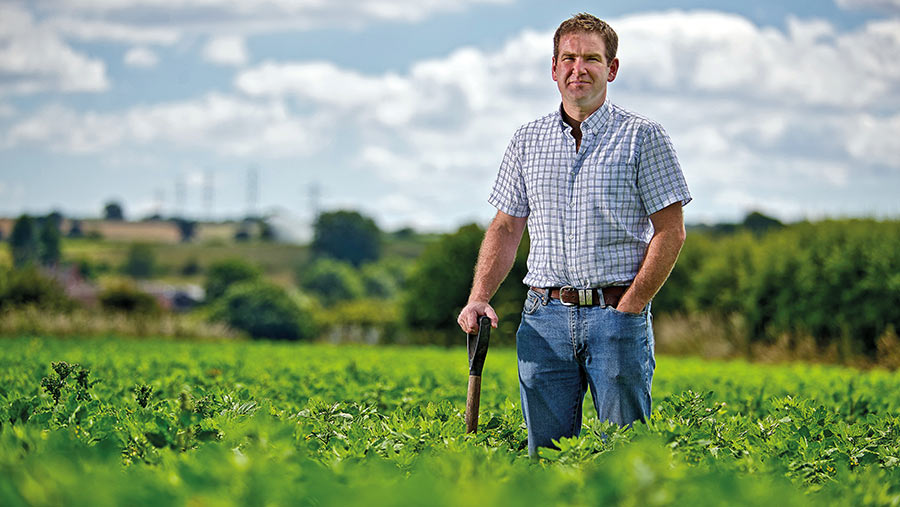
To achieve this Michael is implementing a comprehensive set of climate actions and mitigation measures to promote sustainable agriculture on his farm. He has adopted a no-till system on all arable land to preserve soil structure and reduce erosion. Additionally, he uses cover cropping to protect the soil and enhance organic matter while eliminating the use of insecticides, fungicides (except for a single application on wheat at T2), plant growth regulators, and bagged phosphate and potash, thereby minimising chemical inputs. To ensure optimal crop growth, he maintains stable soil pH levels. He also produces biological brews on the farm that are effective against septoria, fusarium, bunt and smut, reducing the need for chemical treatments. By conducting in-field monitoring of sap pH, nitrogen levels, Brix, and performing laboratory leaf testing, Michael ensures precise nutrient management. Lastly, he applies compost through a muck-for-straw scheme, enriching the soil with organic matter and enhancing its fertility. Through these measures, Michael Kavanagh is making substantial strides in sustainable farming and climate change mitigation.
Tim Parton, friend and fellow Green Farm Collective Farmer said, ‘’We very much believe in regenerative agriculture and the benefits of reduced pesticides, increased carbon capture and improved biodiversity, water, air and soil. We are all about working hard to improve habitats and biodiversity on our farms and are keen to bring in more members to try and educate them and show them how far we have gone in two years and how we can move the whole system forward.’’
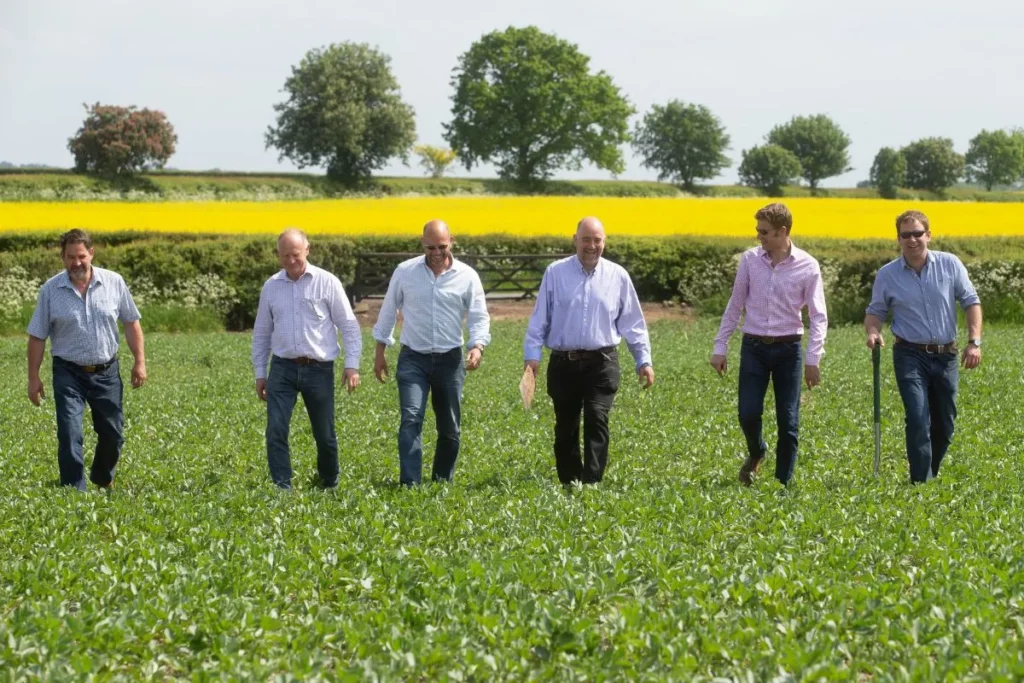
The integration of sustainable practices in farming not only mitigates environmental impact but also ensures food security and resilience against climate variability. The Climate Farm Demo project plays a pivotal role in demonstrating the effectiveness of climate-smart agricultural techniques through real-world applications and collaborative efforts with farmers across Europe. By showcasing innovative solutions and providing a platform for knowledge exchange, Climate Farm Demo fosters a community of practice that is essential for the widespread adoption of sustainable farming methods.
For more information and updates on the Climate Farm Demo Project, follow @climatefarmdemo.

